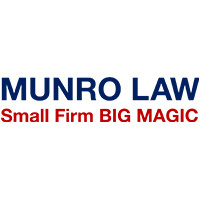Linville White Collar Crime Lawyer, Virginia
Sponsored Law Firm
-
 x
x

Click For More Info:
-
The Law Offices of Richard L. Cooper, P.A.
848 Brickell Avenue Suite 800 Miami, FL 33131» view mapDWI/DUI, Drug Trafficking, Felony Nationally Ranked Top 40 Under 40
With Richard L. Cooper you can expect a trusted confidant who will work diligently to fully understand your case and determine a road map to help you regain control of your life.
800-756-2781
Not enough matches for Linville White Collar Crime lawyer.
Below are all Linville Criminal lawyers.
Robert S. Hahn
✓ VERIFIEDROBERT S. HAHN founded his legal practice in 2003 when he returned to the Shenandoah Valley, serving the needs of clients in criminal, family law, civ... (more)
Robert G. Munro
✓ VERIFIEDCriminal Defense & Child Custody are complex cases and require strong effective representation. Munro Law Firm stands ready for you with free consults... (more)
Scott Timothy Hansen
Kathleen M. Mizzi Todd
FREE CONSULTATION
CONTACT
 Richard L. Cooper Miami, FL
Richard L. Cooper Miami, FL AboutMiami Attorney at Law
AboutMiami Attorney at Law ServicesCriminal Defense
ServicesCriminal Defense


